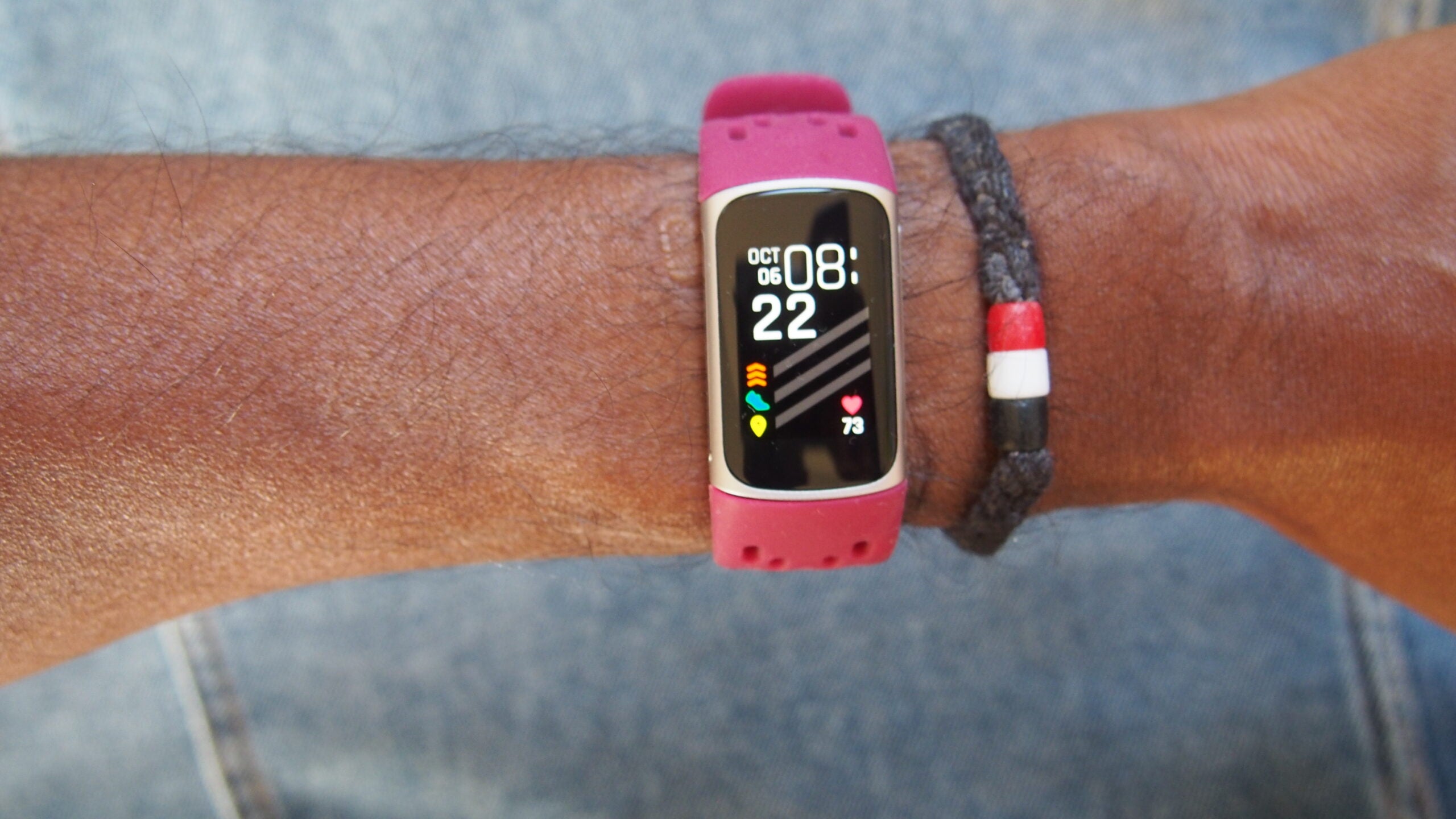The Accuracy of Fitness Trackers: Is It Reliable?
Fitness trackers are all the rage these days, as they promise to give us feedback on how much exercise we get and how many steps we accumulate through the day. But have you ever stopped to wonder how accurate these trackers really are? Well, today we’re here to answer the question of how reliable they are when it comes to logging our physical activity and measuring our progress.
List of Content
- 1. The Basics of Fitness Trackers
- 2. Pros and Cons of Fitness Trackers
- 3. Understanding Accuracy of Fitness Trackers
- 4. Factors Influencing Accuracy of Fitness Trackers
- 5. Practical Tips for Maximizing Accuracy
- 6. Taking a Closer Look at the Claimed Accuracies
- You Ask, I answer

1. The Basics of Fitness Trackers
Fitness trackers are becoming increasingly popular with those who are health conscious or who are training with specific goals in mind. They can be a great way to track your progress and improve your workouts. Here is an overview of the basics you should know:
1. What types of metrics do fitness trackers measure?
Fitness trackers measure a wide range of metrics, depending on the model. Some commonly measured metrics include:
- Calories burned
- Number of steps taken
- Distance traveled
- Heart rate
- Activity level
- Sleep quality and duration
Many models also offer the ability to measure more sport-specific metrics like swim lap counts.
2. How do you track your data?
Most fitness trackers have a companion app that syncs with the tracker. The app stores all the information from your workouts, allowing you to analyze your data and spot trends. Some trackers also have dedicated websites where you can access your stored information.
3. What features should you look for in a fitness tracker?
When shopping for a fitness tracker, you’ll want to consider factors like accuracy, battery life, and display. You should also consider your preferred type of activity – if you’re an avid runner, you’ll want a tracker that’s optimized for running metrics.
4. Are fitness trackers accurate?
Fitness trackers can be a great tool for tracking your progress, but keep in mind that they are not 100% accurate. Many factors can affect the accuracy of your readings, including inaccurate algorithms in the device or your own body movements.

2. Pros and Cons of Fitness Trackers
Fitness trackers have become quite popular among those who want to take their fitness goals into their own hands. Here we cover what you need to know when it comes to the pros and cons of these fitness devices.
Pros of Fitness Trackers
- They can help keep you motivated by allowing you to keep track of your progress.
- They can provide access to vital activity data which can help you make more informed decisions.
- They can help with setting goals and providing feedback. This can be a great tool for beginners.
- These trackers can help with staying organized and allowing you to focus on other areas of your life while also taking care of your physical health.
Cons of Fitness Trackers
- They can be expensive, depending on the model you choose. Some require a subscription and accessories.
- The data they provide may not necessarily be accurate for everyone. Different; bodies with their own specific activity characteristics may yield inaccurate results.
- Fitness trackers can become a distraction when used in excess. It is important to keep in mind their limitations.
- The focus may be too narrow. That is, if you are training for a specific goal, then the tracker may not provide you with the level of support that you need.
Fitness trackers can be a great way to stay motivated and informed about your physical activity. However, it is important to be aware of their limitations and the costs associated with them. Depending on your goals and preferences, this type of technology can be an invaluable addition to your fitness regimen.
3. Understanding Accuracy of Fitness Trackers
Using Basic Accuracy Tests to Check Your Device
Accuracy of fitness trackers depends on a variety of factors, such as the type of device you’re using, the quality of its components, and how you wear it. Testing it is a smart way of assessing how effectively your device works. An easy way of testing the accuracy is to check the step count, heart rate, and distance measurements. Here’s what you can do:
- Walk your same route repeatedly and compare the step count.
- Climb stairs and check if the altitude measurements change significantly.
- Perform easy cardio activities and measure you heart rate with the device.
- See how your device estimates distance when you walk, run, or bike.
It’s important to remind yourself that accuracy tests rely on our own personal judgement. No two tests are ever exactly the same, so it’s great to check your device periodically just to check how well it works.
GPS Readings for Runners and Cyclists
For runners and cyclists, GPS readings are important. Almost all fitness trackers that claim to measure distance, include a built-in GPS module. Best way to test the GPS readings is to cross-check it with another GPS device or mobile app. Make sure to use it in varied scenarios such as varied terrain and changing weather. This will give you a good idea if the readings are accurate or not.
Data Quality and Third-Party Apps
Data quality is one of the essential aspects of fitness trackers. You should compare the data generated by your fitness tracker with that from other sources. A lot of third-party apps can help you transfer your fitness data for comparison such as Apple Health or Google Fit. Choose one that gives you the most accurate reading.
Check Company Support
Sometimes it could be an issue with the device itself or a bug in the software. Even for the best fitness trackers, there will be times when accuracy tests don’t go according to plan. In such cases, you can check company support – check if there’s customer support or a section for troubleshooting on its website. This should help you solve the issue, or you may need to replace your device.
4. Factors Influencing Accuracy of Fitness Trackers
Fitness trackers are convenient devices to monitor the amount of physical activity a person does. However, there are many factors that influence their accuracy. Here are four common factors that can impact the accuracy of a fitness tracker.
- Fit: The fit of the fitness tracker on the wrist affects its accuracy. It should be tight but comfortable enough for the user to wear it all the time. If it’s too loose, the sensors won’t be able to detect movements correctly.
- Motor Behavior: Different motor behaviors require different combinations of sensors to properly track them. Some movements, like walking or running, use horizontal motion and can be tracked accurately by fitness trackers. Others, such as weight-lifting, are more complex and require additional sensors to be tracked accurately.
- Sensor Quality: A fitness tracker with high-quality sensors will yield more accurate results than a device with low-quality sensors, although this may come at an additional cost. It is important to research different fitness trackers in order to ensure you’re getting the best quality for your money.
- Data Analysis: A high-end fitness tracker may measure movements accurately, but the data it produces is only as useful as the algorithms used to interpret it. Most fitness trackers measure and track the same data points, but their algorithms may be different. It’s important to research the data analysis capabilities of a fitness tracker before purchase.
These are just a few of the main factors that can influence the accuracy of fitness trackers. As technology continues to advance, more factors may emerge, so it is important to be aware of any updates or changes in order to get the most out of your fitness tracker.
Keep in mind that the accuracy of a fitness tracker ultimately depends on the user. It’s important to wear it properly and use it consistently in order to get the most accurate results.
5. Practical Tips for Maximizing Accuracy
The purpose of accuracy is to ensure the accuracy in both written and spoken words. In order to maximize accuracy, it’s important to understand the basics and practice. Here are five :
- Stay Current: Practicing accuracy means being attentive to the changing nature of language. Things don’t always stay the same and so it’s important to stay up-to-date with the latest terms and definitions.
- Proofread: When it comes to written words, proofreading is key. Double-check everything against the original source. It’s also a good idea to have a second set of eyes take a look.
- Listen Carefully: It’s all too easy to jump to conclusions when it comes to spoken words. Train yourself to really listen to the speaker and take time to think before responding.
- Take Notes: When listening in meetings or lectures, it’s best to take notes. This way, it is easier to remember accurate details and refer back to them if needed.
- Break it Down: Sometimes accuracy is best achieved when information is broken down into smaller chunks. This makes it easier to follow the flow of information and grasp the nuances correctly.
These five practical tips will help ensure accuracy and precision in both your written and spoken words. By following these tips, you’ll be able to communicate with confidence and accuracy.
6. Taking a Closer Look at the Claimed Accuracies
Many companies claiming to have high accuracy facial recognition systems can be skeptical. It is a daunting task to assess whether these claims are true or not. Here’s what you should keep in mind when evaluating the accuracy of a facial recognition system.
1. Factors Affecting Accuracy
The accuracy of a facial recognition system is affected by several factors such as the quality and type of data used for training and the characteristics of the faces in the data set. Having more data samples and variety of samples can help improve accuracy. Additionally, the angle of the face, distance to the camera, degree of illumination, and the ethnicity of the subject may also affect accuracy.
2. Testing process
Having a complete testing process is essential to determine the accuracy of a facial recognition system. This process should accurately simulate the environment a facial recognition system is expected to work in, and it should also include testing for various facial features and conditions. It is important to use a large sample set for testing and a variety of test scenarios.
3. Benchmark datasets
Comparing a system to benchmark datasets can provide a reference point and help assess its accuracy. This comparison should take into account various aspects such as the accuracy in matching faces, the time taken to perform recognition, the accuracy of recognizing different facial features, the ability to recognize different races, and more.
4. Independent evaluations
It is important to have an independent team evaluate the accuracy of a system. This team should be comprised of experts knowledgeable in facial recognition algorithms and camera systems. This team should have access to all the available data and results, and should also be allowed to perform additional tests to validate the claimed accuracy.
You Ask, I answer
Q: What is a fitness tracker?
A: A fitness tracker is a device that can measure a person’s physical activity such as steps taken, calories burned, heart rate, and sleep pattern. The device is worn on the body, typically as a wristband or watch.
Q: How accurate are fitness trackers?
A: The accuracy of fitness trackers depends on the type of tracker and the age, weight, and height of the user. Studies have found that some basic fitness trackers may be accurate for measuring steps taken, but may not be as reliable for tracking other metrics like heart rate or sleep.
Q: What should I look for in a fitness tracker?
A: You should consider the type of activities you plan to track, as well as your budget. If you are tracking more complex metrics like heart rate or sleep, you may want to purchase a device with advanced features such as GPS and heart rate monitors. Additionally, you should look for a device with reliable customer support in case you encounter any issues with the tracker.
Overall, fitness trackers provide reliable data, but like all tools, they have their limitations. They’re still useful for tracking some fitness goals like steps, but for those looking for more insight into their workout performance, more detailed measures like a personal coach may be necessary. No matter how you choose to track your fitness, you can be confident that these devices can be a great help in reaching your goals.


